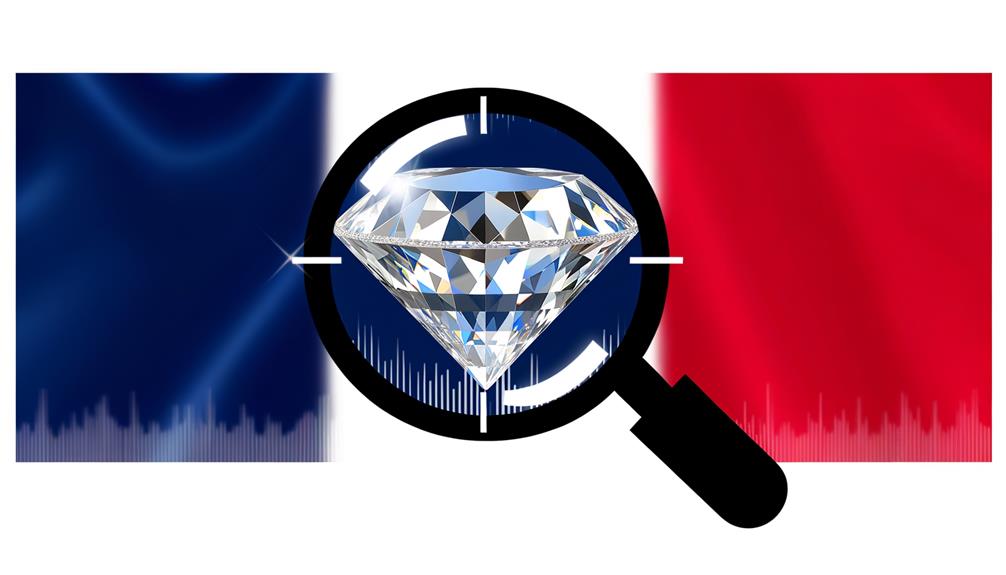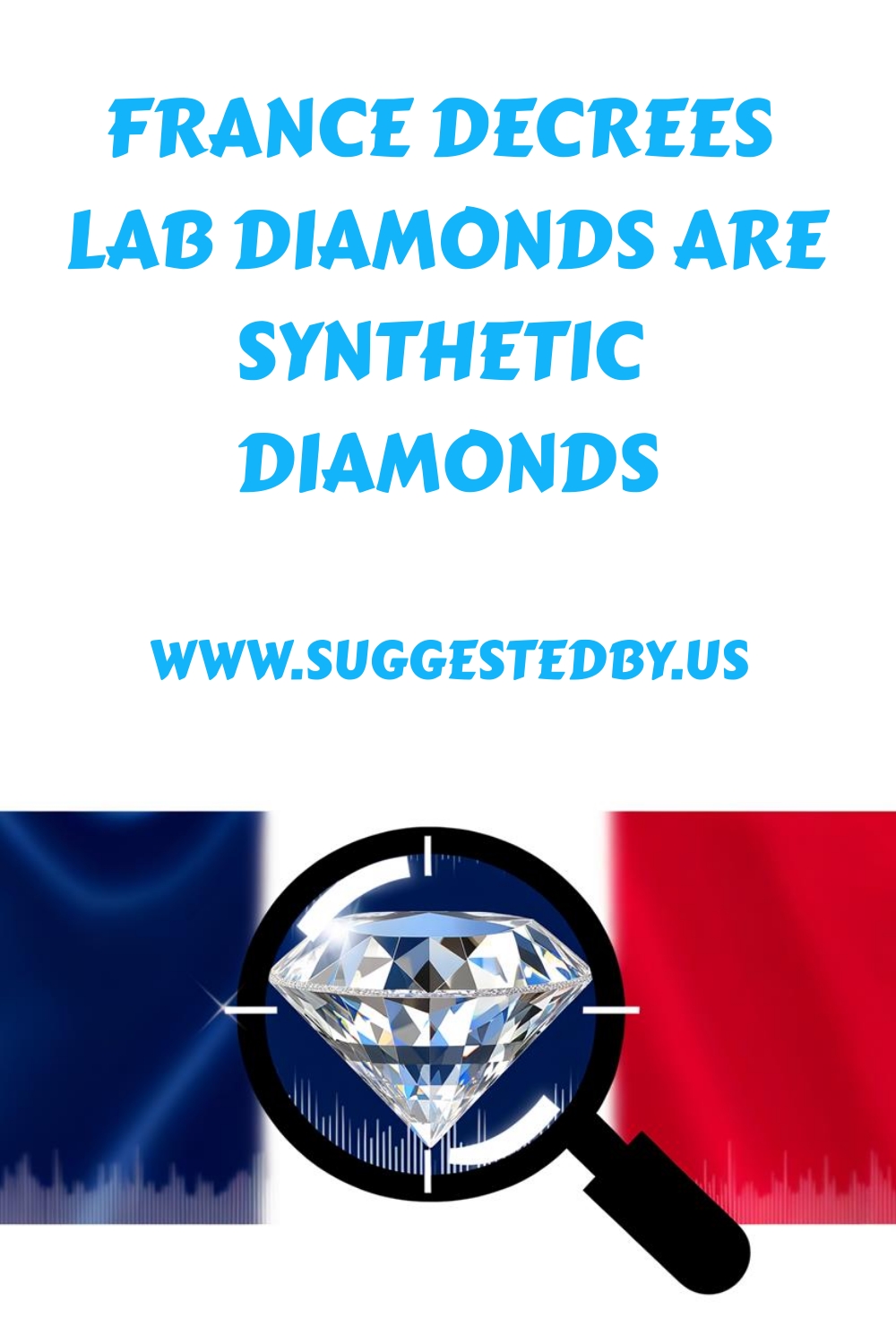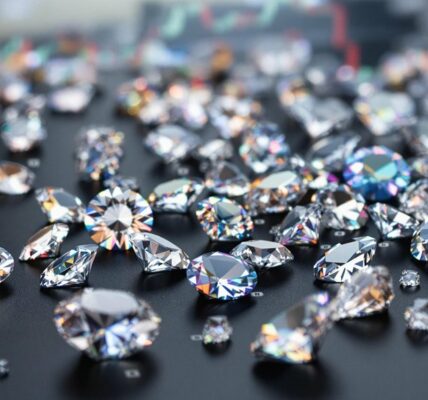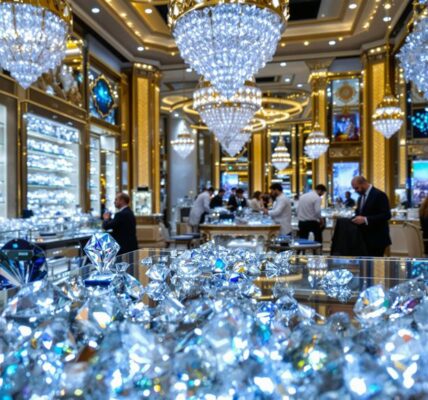In a recent move by the French government, lab-grown diamond sellers must adhere to a 2002 decree restricting the terminology used to describe their products. Only the term ‘synthetic’ is deemed acceptable for stones that closely resemble natural diamonds in physical, chemical, and crystal structure.
This decision has raised questions about consumers’ understanding and acceptance of synthetic diamonds. Contrasting with the approach taken by the U.S. Federal Trade Commission, which removed ‘synthetic’ from its recommended terms in 2018, France’s stance is supported by international customs authorities.
The implications of this ruling and the ongoing debate surrounding lab-grown diamonds make for an intriguing discussion on the future of the diamond industry.
Article Contents
- 1 Key Takeaways
- 2 French Authorities Enforce “Synthetic” Labeling for Lab-Grown Diamonds
- 3 The 2002 Decree and Its Impact on Diamond Sellers
- 4 France’s Ministry of the Economy Maintains the Rule
- 5 Consumer Understanding and Acceptance of Synthetic Diamonds
- 6 Contrasting Approaches: France Vs. the U.S. Federal Trade Commission
- 7 Frequently Asked Questions
- 8 Further Reading On The French Decree About The Term Synthetic Diamonds
Key Takeaways
- French authorities have ruled that lab-grown diamond sellers can only use the term “synthetic” to describe their product.
- A 2002 decree lists “synthetic” as the only acceptable qualifier for lab-grown diamonds that closely resemble natural stones.
- After consultations with the trade, the French Ministry of the Economy decided to maintain the existing rule.
- The term “synthetic” is considered clear and understandable by consumers, according to a survey of over 1,000 French people.
French Authorities Enforce “Synthetic” Labeling for Lab-Grown Diamonds
French authorities have implemented strict regulations mandating the use of the term ‘synthetic’ as the exclusive labelling for lab-grown diamonds, prohibiting alternative terms such as ‘laboratory-created’ or ‘lab-grown.’ This decision comes from the 2002 decree, which states that only the term ‘synthetic’ is acceptable for stones that closely resemble natural diamonds in their physical and chemical properties and crystal structure. Despite efforts to modify the ruling, most industry players in France support maintaining the decree.
The decision to enforce the use of ‘synthetic’ terminology for lab-grown diamonds has significant implications for consumer perception, industry compliance, marketing strategies, labelling requirements, and ethical considerations. Using the term ‘synthetic’ provides clarity to consumers, enabling them to distinguish lab-grown diamonds from naturally mined ones. This labelling requirement ensures that consumers are not misled and understand the origin of the diamonds they are purchasing.
From an industry perspective, complying with these regulations is crucial to maintaining transparency and building customer trust. Jewellers and diamond sellers must adapt their marketing strategies to align with the labelling requirements set by French authorities. Failure to comply with these regulations may result in legal consequences and reputational damage.
Moreover, enforcing the ‘synthetic’ labelling requirement has ethical implications. By clearly identifying lab-grown diamonds as synthetic, consumers are informed about the manufacturing process and can make more informed choices. This promotes sustainability and reduces the demand for mined diamonds, which can have adverse environmental and social impacts.
The 2002 Decree and Its Impact on Diamond Sellers
Implementing the 2002 decree in France has significantly impacted diamond sellers by mandating the use of the term ‘synthetic’ as the exclusive label for lab-grown diamonds. This ruling has had far-reaching effects on various aspects of the diamond industry.
Firstly, diamond sellers have had to adapt their marketing strategies to comply with the decree. They are now required to clearly label their lab-grown diamonds as synthetic, ensuring transparency and clarity for consumers. This has resulted in a standardized approach to labelling lab-grown diamonds in the French market.
The decree also carries ethical implications. By using the term synthetic, consumers are made aware that these diamonds are not natural and have been created in a laboratory. This allows consumers to make informed choices and eliminates the potential for confusion or misrepresentation.
Regarding pricing trends, the decree has not had a significant impact. Lab-grown diamonds have already been priced differently from natural diamonds due to their different production methods and availability. The use of the term synthetic has not caused a noticeable shift in pricing.
From an environmental perspective, the ruling promotes sustainability by encouraging the use of lab-grown diamonds instead of mined diamonds. Lab-grown diamonds have a lower environmental impact as they do not require mining, reducing the carbon footprint associated with diamond extraction.
Industry reactions to the 2002 decree have been mixed. While some jewellers have embraced the use of the term synthetic, others have continued to use alternative terms such as ‘lab-grown’. However, French authorities have been enforcing the use of the term synthetic, aiming to maintain consistency and clarity in labelling lab-grown diamonds.
France’s Ministry of the Economy Maintains the Rule
The decision of the French Ministry of the Economy to uphold the mandate for lab-grown diamonds to be labelled as ‘synthetic’ has garnered support from the majority of industry players, according to a ministry analysis. The ministry’s ruling maintains the existing labelling regulations for lab-grown diamonds in France. Efforts to change the ruling and allow alternative terms like ‘laboratory-created’ were rejected in 2022.
The ministry’s analysis revealed that most industry players favour maintaining the 2002 decree, which lists ‘synthetic’ as the acceptable qualifier for lab-grown diamonds. This decision aligns with global standards, as international customs authorities also require manufactured diamonds to be labelled synthetic.
The French jewellery organization UFBJOP argued that ‘synthetic’ is the most consumer-friendly term for lab-grown diamonds. They surveyed over 1,000 French people, which showed that 83% of respondents could define synthetic diamonds as artificial stones. Furthermore, 90% of those questioned understood that lab-grown diamonds are not extracted from the earth.
Despite the ruling, some French jewellers like Courbet and FRED (owned by LVMH) have used the term ‘lab-grown’ to describe their synthetic gems. However, the ministry’s decision reinforces the need for industry compliance with the labelling regulations and encourages jewellers to consider consumer perception and marketing strategies when promoting lab-grown diamonds.
Consumer Understanding and Acceptance of Synthetic Diamonds
Consumer perception and acceptance of synthetic diamonds play a crucial role in the growth and development of the lab-grown diamond industry. According to a survey of over 1,000 French individuals aged 25 and above, 83% were able to correctly define synthetic diamonds as artificial stones, while 90% understood that these stones are not mined from the earth. This indicates a relatively high level of consumer awareness regarding synthetic diamonds in France.
International customs authorities require that, in cases where there is no acceptable local translation of the terms laboratory grown or laboratory created then manufactured diamonds must be labelled “synthetic” to further support consumer education and understanding. This labelling regulation helps ensure market transparency and provides consumers with accurate information about the origin of the diamonds they are purchasing.
However, there are contrasting approaches to terminology in different countries. While the French government has ruled that lab-grown diamond sellers can only use the term synthetic, the U.S. Federal Trade Commission (FTC) has removed synthetic from its list of recommended terms for lab-grown diamonds. The FTC’s decision was based on concerns that consumers might mistakenly believe that lab-grown diamonds are non-diamond simulants.
It is important for the industry to establish clear industry standards and labelling regulations to avoid confusion and ensure consumer confidence in the lab-grown diamond market. Public education initiatives can also play a significant role in increasing consumer understanding and acceptance of synthetic diamonds.
Contrasting Approaches: France Vs. the U.S. Federal Trade Commission
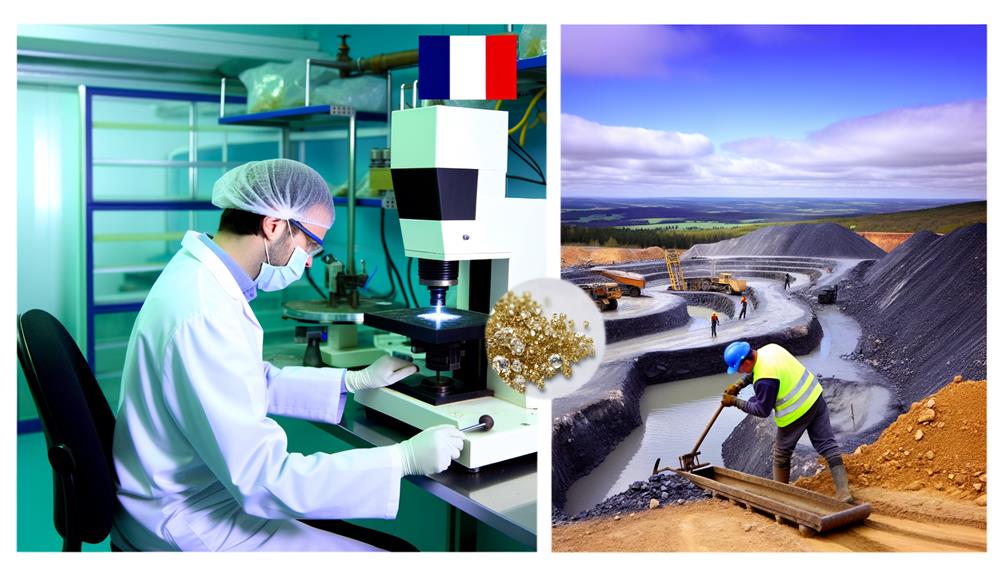
In comparing the regulatory approaches of France and the U.S. Federal Trade Commission (FTC), stark differences emerge regarding the terminology used to describe lab-grown diamonds. French authorities require the use of ‘synthetic’ as the sole acceptable term, while the FTC removed ‘synthetic’ from its recommended terms in 2018. The FTC’s decision aimed to prevent consumer confusion between lab-grown diamonds and non-diamond simulants, although it did not ban the term ‘synthetic’ and used it in a 2021 blog post. These regulatory differences highlight the importance of industry compliance with regional guidelines.
The FTC’s guidelines recognize lab-created diamonds as real gemstones, impacting industry standards and consumer perceptions. On the other hand, the French government emphasizes the use of ‘synthetic’ for accurate labelling and market transparency. Despite the French ruling, some jewellers, such as Courbet, continue to use terms like ‘lab-grown’ for synthetic diamonds. Adherence to consistent terminology is crucial for consumer understanding and preventing confusion. The contrasting approaches of France and the FTC emphasize the need for industry players to navigate and comply with regional guidelines.
Frequently Asked Questions
Why Are Jewelers Pushing Lab-Grown Diamonds?
Jewellers are pushing lab-grown diamonds due to their environmental benefits, lower cost than natural diamonds, and the growing demand for ethical and conflict-free jewellery. This aligns with consumer preferences and addresses concerns surrounding diamond mining.
Are Synthetic Diamonds Fake Diamonds? Why?
Synthetic diamonds are not considered fake, as they have the same physical, chemical, and optical properties as natural diamonds. The term “synthetic” is mandated to accurately describe lab-grown diamonds and ensure transparency in the diamond market.
Can You Detect Synthetic Diamond?
Detecting synthetic diamonds involves various techniques, such as spectroscopy and microscopy, to analyze their distinguishing factors, including growth patterns and impurities. Market demand for detection technology arises from ethical concerns and the environmental impact of diamond mining. Additionally, with the rise of lab-grown diamonds, detecting lab diamond fraud has become a significant challenge for the industry. Companies are investing in advanced detection methods to ensure the authenticity of their diamonds and maintain consumer trust. This has led to the development of innovative technologies and partnerships between diamond producers and detection technology companies.
Which Countries Produce Synthetic Diamonds?
China, Russia, the United States, India, and Singapore are among the countries that produce synthetic diamonds. These lab-grown diamonds are created using advanced technology and have become increasingly popular in the jewellery industry.
Further Reading On The French Decree About The Term Synthetic Diamonds
1: France Says Diamond Growers Must Stick to “Synthetic”
2: France Says “Non” to Lab Grown Descriptions
3: France: Stop Saying “Laboratory Diamond”
4: France bans the term ‘cultivated diamond’
5: Lab-Grown Diamonds Are Now ‘Synthetic’ Diamonds!
